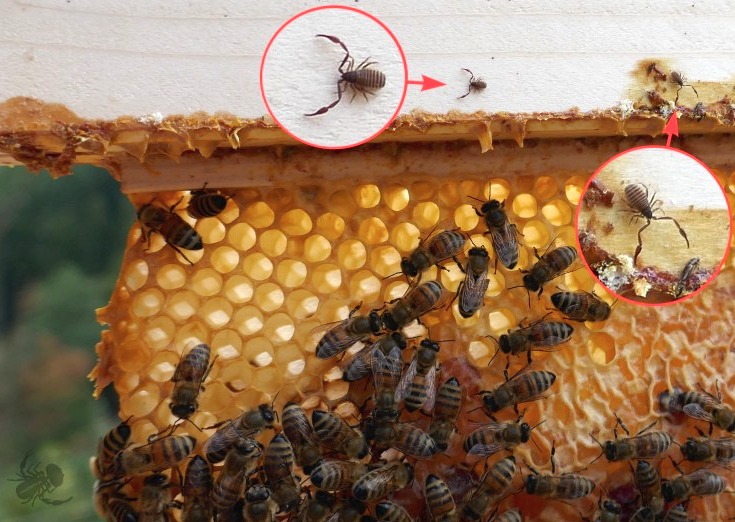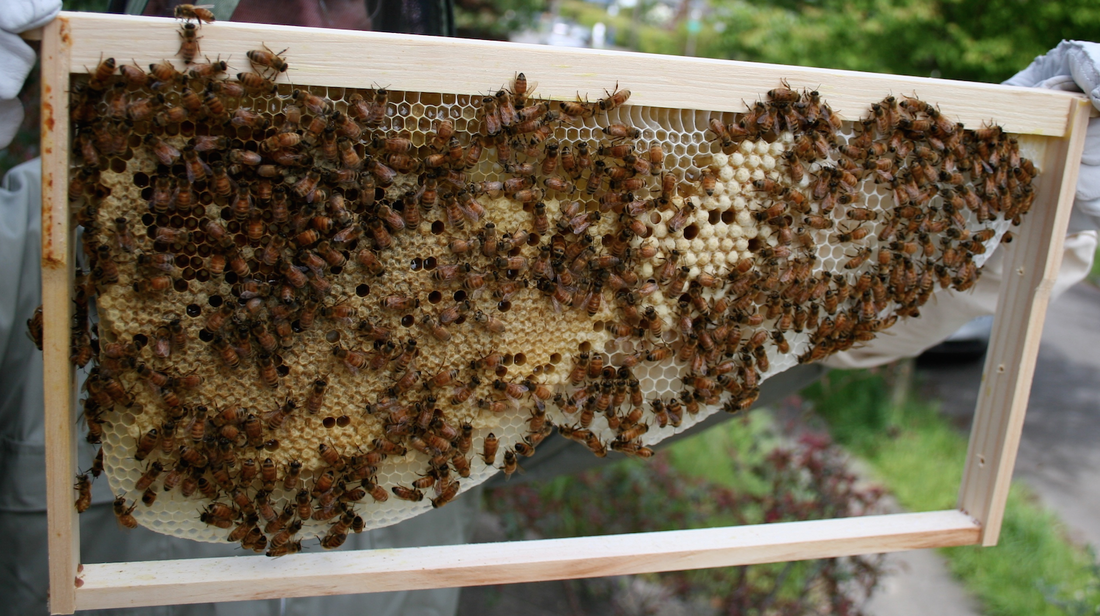...are tiny arachnids, not scorpions at all!... but they have cool pincers and they prey on the larvae of clothes moths, carpet beetles, booklice, ants, and varroa mites. What's not to love?
It all started with a conversation in a beekeeping forum concerning the problem of varroa mites, and wondering if there were natural, non-chemical methods (besides hosting foundationless hives*) that might be employed to lessen the varroa mites' impact on a hive. Our question led us to two beekeeping researchers who are working with restoring a beehive's ecosystem by reintroducing pseudoscorpions into the mix to create a more diverse and healthy hive habitat.
In my first foray into the world of the pseudoscorpion, I found Torben Schiffer and his website beenature-project though this article (written in English, rather than German). In a nutshell: "Bees and pseudoscorpions have cohabited in hives for thousands of years, but toxic chemicals used in beekeeping have nearly eradicated the 'little insect with the tooth of poison.’ Torben’s mission is to restore the natural symbiosis between the two species in order to control the new unwelcome member of the triangle, the varroa mite."
Torben's research partners are teens from the Hamburg school where he teaches biology :^)
Sachs states: "The book scorpion’s potential is enormous. Though it is not the cure for the various problems of honey bees and modern beekeeping it can – in a suitable habitat (geometry & properties of hollow trees) and within the scope of natural beekeeping (no acids/chemistry, low honey extraction, swarming, etc.) – effectively combat the parasites. Not only the Varroa mite is on its menu. It will also suck out bee lices, small hive beetles, and wax moths with pleasure. Having book scorpions within bee hives signals natural beekeeping and an intact hive climate. Integrating it into your bee hives unfortunately cannot be the first step towards successful beekeeping without acids and chemistry. On the contrary its successful settlement can only be the result of a species-appropriate beekeeping, since book scorpions are very sensitive they will quickly leave an unsuitable habitat." Natural Beekeeping with Book Scorpions
We host foundationless hives, i.e. naturally-drawn small cell comb, which disrupts the varroa life cycle. Though considered "alternative", Natural Beekeeping is a treatment-free philosophy of nurturing healthy bees as well as sustainable beekeeping practices. I would love to introduce pseudoscorpions to my bees and am looking into sourcing options.


 RSS Feed
RSS Feed
